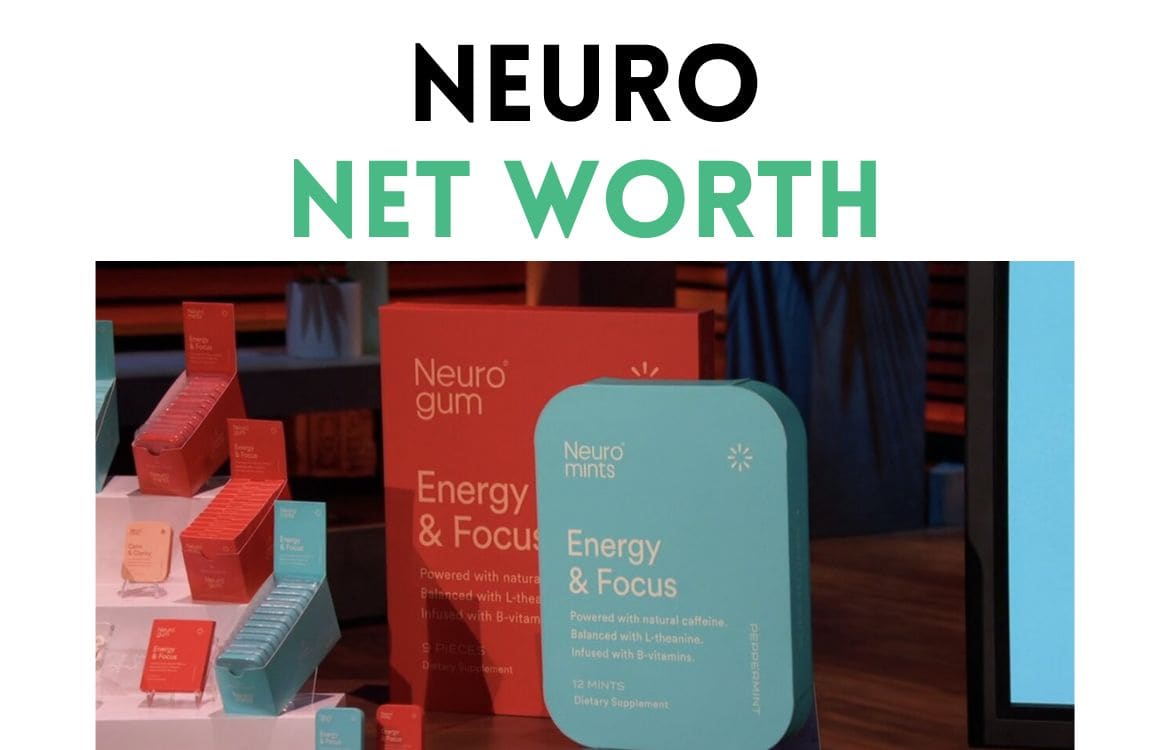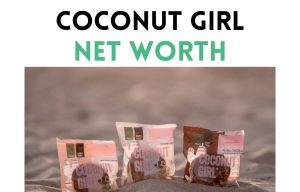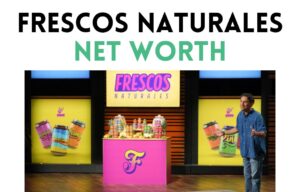Many people rely on coffee or energy drinks to stay awake and focused throughout the day. But carrying a cup of coffee around isn’t always easy. Energy drinks are often packed with sugar and can leave you with a crash later on. This creates a big problem for busy people who need a quick and healthy way to get an energy boost.
Kent Yoshimura and Ryan Chen understood this issue personally. They wanted something more convenient, healthier, and faster than coffee or sugary drinks.
This is how they came up with the idea for Neuro Gum and Mints. Their products are designed to give a clean, balanced boost in energy and focus without the jitters or crashes you get from traditional caffeinated drinks. They decided to pitch their idea to the sharks on Shark Tank Season 11. They hoped to find a partner who could help take their unique gum and mints to the next level.
Neuro Net Worth Shark Tank Update 2025
Kent and Ryan were looking for an investment of $750k in exchange for 5% equity in the company. At the time of the episode, they valued their company at $15 million. Kent and Ryan did not secure a deal with any of the Sharks and walked away without an investment. Since no deal was made, the company’s net worth remained at around $15 million. After the show was aired, the company experienced a good boost in exposure. As per my rough estimate, the current net worth of Neuro is around $50 million.
| Shark(s) Name | Offer & Demand | Counteroffer | Accepted? |
| Robert Herjavec | $1 million for 20% equity | $1 million for 10% equity$1 million for 14% equity | No |
| Kevin O’Leary | $750,000 at 5% equity plus $0.50/unit royalty until he recouped $1 million | N/A | No |
| Mark Cuban | N/A | N/A | N/A |
| Lori Greiner | N/A | N/A | N/A |
| Daniel Lubetzky | N/A | N/A | N/A |
Kent Yoshimura and Ryan Chen Backstory + Their Initial Pitch
Kent Yoshimura and Ryan Chen first met when they were student-athletes in college. They were both dedicated to training and balancing their busy schedules. As athletes and students, they needed something to give them an extra push of energy during long days. But they found that coffee wasn’t always convenient. Carrying it around wasn’t practical, and energy drinks didn’t seem healthy enough.
Kent, who had experience mixing supplements, started experimenting in his kitchen. He tried to find a formula that would give him steady energy without making him feel jittery or causing a crash afterward.
After a lot of testing, Kent finally came up with the perfect blend. This mix included natural caffeine for energy, L-theanine for focus and calmness, and essential vitamins. When he shared it with Ryan, they both realized they had something special. They decided to turn the formula into a gum so people could get their boost anytime, anywhere. Soon after, they expanded the idea to include mints as well.
These products would dissolve in the mouth quickly and provide fast-acting energy. Both gum and mints were made vegan and sugar-free to keep them as healthy as possible.
By the time they appeared on Shark Tank, Kent and Ryan had been in business for four years. They told the sharks that Neuro had made $3.5 million in sales in the year before filming. They had recently gotten their products into CVS stores, and online sales on Amazon were growing fast. They also shared that their gum and mints were popular among customers who subscribed to regular deliveries.
Kent and Ryan explained their pricing model. A pack of gum sells for $3.99 and only costs $0.67 to produce, leaving them with healthy profit margins. They explained that they wanted the sharks’ investment to help them grow distribution and expand their presence in retail stores.
Their confident pitch impressed the sharks. They showed how easy it was to pop a piece of gum and get an energy boost within minutes. They explained that each piece kicks in after about five to ten minutes. They highlighted that Neuro products were free from sugar and other unhealthy additives often found in energy drinks. They asked the sharks for $750,000 in exchange for 5% equity, valuing their company at $15 million.
Queries + Sharks’ Responses, and Final Deal
The sharks had many questions about Neuro’s business model, sales, and future plans. Kevin O’Leary was one of the first to speak up. He asked Kent and Ryan how they planned to use the $750,000 they were asking for. They replied that they wanted to spend the money on marketing to get Neuro products into more stores and reach new customers. Kevin was puzzled by this answer.
He wondered why they wanted to push retail so hard when their online sales model was already working well. He said their focus on retail didn’t make sense to him because direct-to-consumer sales were doing great.
Robert Herjavec liked the idea and saw potential in the product. But he worried that the valuation was too high for the risk he would be taking. He told them directly that he wasn’t comfortable with the $15 million valuation. Still, he was impressed enough to make an offer. Robert said he would invest $1 million, but in exchange, he wanted 20% equity in the company.
Kent and Ryan tried to negotiate and asked Robert if he could lower the equity stake to 10%, but Robert came back with a counteroffer. He was willing to go as low as 14% equity, but not lower. The founders thanked him but said they couldn’t agree to that much equity.
Kevin O’Leary also decided to make an offer. He didn’t like their valuation either and told them it was “stinky poo poo.” But he still believed in the product’s potential. Kevin offered $750,000 at 5% equity, but he also wanted a royalty of $0.50 per unit sold until he made his money back, up to $1 million.
This meant they would need to pay him 50 cents for every pack sold until they had paid back $1 million, in addition to giving him 5% ownership in the company. Kent and Ryan thought about it, but didn’t like the idea of the royalty.
Guest shark Daniel Lubetzky praised the founders for their energy and creativity. He said he was inspired by what they had built. But he worried that Neuro could grow too fast and struggle to keep up with demand, which could lead to big problems. He also said he personally couldn’t relate to the product, since he doesn’t use energy supplements himself. Because of these reasons, Daniel said he would not invest and went out.
Mark Cuban listened carefully to everything Kent and Ryan said. He told them he wasn’t comfortable with investing in a supplement product that made claims about mental clarity and focus. Mark said those types of claims made him uneasy because they could lead to problems with regulations or lawsuits. He explained he didn’t want to take on that kind of risk, so he went out too.
Lori Greiner stayed mostly quiet during the pitch. When she did speak, she agreed with some of the concerns the other sharks raised. She didn’t see Neuro fitting well with her typical products and brands. She also didn’t feel confident about selling it on platforms like QVC, where she does most of her business. For these reasons, Lori decided not to invest and went out.
In the end, even though they received two offers from Kevin and Robert, Kent and Ryan chose to walk away. They felt neither offer matched their vision for Neuro and what they wanted from a partner. They thanked the sharks and left the tank without a deal.
What Went Wrong With Neuro On Shark Tank?
Neuro didn’t get a deal on Shark Tank, but that doesn’t mean their pitch failed. There were a few reasons why the sharks chose not to invest. First, the company’s valuation of $15 million seemed too high for several sharks, especially since the company was still young and facing the challenges of breaking into retail. Robert and Kevin both mentioned that they thought the valuation was unrealistic compared to the risk they would be taking on.
Robert offered a deal but asked for a higher equity stake than the founders were willing to give up. Kevin’s offer included a royalty, which the entrepreneurs felt would cut too much into their profits.
Mark Cuban’s main concern was the nature of the product itself. He worried about the legal risks of selling a supplement that makes claims about energy, focus, and mental clarity. He said he wasn’t comfortable investing in a company that could get into trouble with regulators or face lawsuits over its claims.
Daniel Lubetzky liked Kent and Ryan’s passion but said he couldn’t connect personally with the product. He worried that rapid growth could overwhelm them, possibly causing them to fail under pressure.
Lori Greiner didn’t see the product fitting well with her current business. She felt that Neuro was outside her area of expertise, which focuses mostly on household and beauty products. All these concerns combined made most of the sharks decide not to invest.
Product Availability
Neuro’s products include caffeinated gum and mints made with a mix of natural caffeine, L-theanine, and essential vitamins. These ingredients give people a balanced boost of energy and mental clarity without the crash of sugary drinks. The gum and mints are vegan and sugar-free, which makes them appealing to health-conscious customers. Each piece starts working within five to ten minutes, making it much faster than waiting for a cup of coffee to kick in.
Neuro comes in different flavors, and the packaging is slim and easy to carry in your pocket or bag, making it perfect for people on the go.
You can buy Neuro products on their official website, getneuro.com, where they offer different packs and subscription options. Neuro is also available on Amazon, where it consistently ranks as one of the top products in the energy gum category. After Shark Tank, Neuro expanded its retail presence significantly. You can now find Neuro in major stores like CVS, Walmart, Meijer, Whole Foods, and Target.
They’ve also partnered with dozens of other retailers to bring their products to over 10,000 stores across the country. Prices for Neuro gum and mints start around $3.99 per pack, making it affordable for most people who want a healthier way to get their energy fix.
What Happened To Neuro After Shark Tank?
Neuro didn’t get a deal on Shark Tank, but walking away turned out to be the right choice for Kent and Ryan. After the show aired, their website traffic and sales grew dramatically. In interviews, they shared that Neuro has since grown into an eight-figure business, with annual sales exceeding $12 million.
They said they are now selling over 50 million pieces of gum and mints and that their products are available in more than 10,000 retail locations across the country. Neuro is now the best-selling product in its category on Amazon, proving the strength of its direct-to-consumer model.
Kent and Ryan also expanded the Neuro product line. They introduced new products like Calm & Clarity, which helps with relaxation, and they are working on a sleep formula to help people get better rest. Their success didn’t just come from Shark Tank exposure. The gum got a big boost when podcaster and UFC commentator Joe Rogan talked about it on his show.
After Rogan’s mention, Neuro’s website traffic multiplied by 20, and sales skyrocketed. The brand used this momentum to build even more partnerships and launch more marketing campaigns.
Today, Neuro remains a growing, thriving company. They continue to improve their formulas and packaging, while maintaining a strong online presence and loyal customer base. They share updates on TikTok, Instagram, and other social media platforms to keep customers engaged. Neuro’s founders say the Shark Tank experience was unforgettable and gave them valuable lessons.
But their decision to stay true to their vision without giving up too much equity has clearly paid off, as the company is stronger than ever.
Conclusion
Neuro’s journey on Shark Tank showed how important it is for entrepreneurs to believe in their business and know what they want from an investor. Even though Kent and Ryan didn’t secure a deal, they stayed focused on their vision. They walked away from offers that didn’t feel right to them. Since then, they have turned Neuro into an eight-figure business with products in thousands of stores.
Their story proves that not getting a deal doesn’t mean the end of the road. Instead, it can motivate founders to work harder and achieve even greater success. Today, Neuro Gum and Mints are helping millions of people get clean, convenient energy. Kent and Ryan’s determination helped them create a product that fills a real need and resonates with customers everywhere. Their Shark Tank experience was just the beginning of a bright future.

Hey, I’m Amna Habib, an undergraduate student pursuing a Bachelor’s in Business Administration. Shark Tank has always been one of my favorite TV shows because it offers a unique glimpse into the world of entrepreneurship. The way entrepreneurs present innovative solutions to everyday problems aligns with my academic interests and fuels my curiosity about business strategies. Each pitch showcases creativity and strategic decision-making, which I find both insightful and inspiring. Watching the show has deepened my passion for business and motivated me to explore the world of entrepreneurship even further. Beyond business and writing, I love food, shopping, and spending time with my friends and family.










